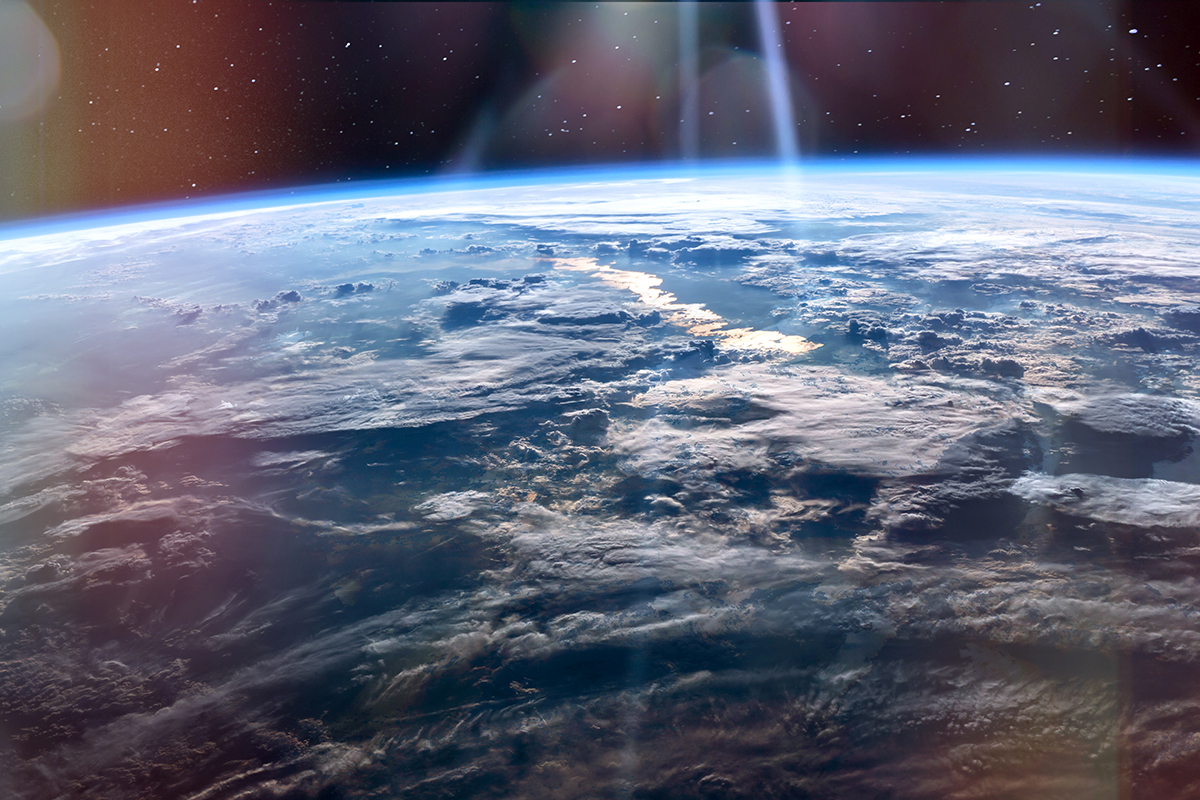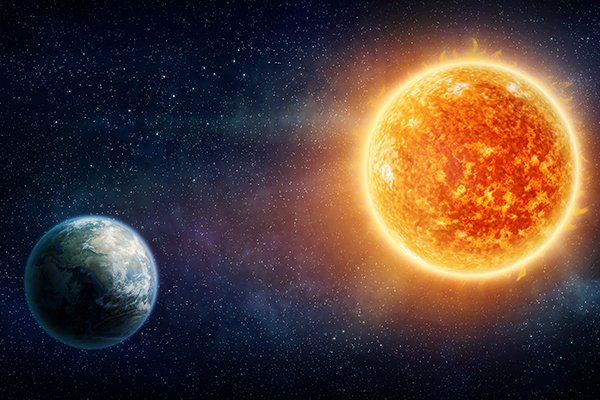Imagine gazing at an aurora borealis in the sky, a breathtaking spectacle that takes our breath away. But behind this beauty lies a more alarming reality: the Sun, our nearest star, could be more dangerous than we think. Recent discoveries reveal that solar flares, once thought to be mere astronomical phenomena, could have devastating effects on life on our planet. In this article, we will explore how these explosions can threaten our existence and why we should pay attention to these cosmic events.
Solar flares: a silent risk
The stunning solar storms that grace our skies with auroras are just one of the more visible manifestations of a much more complex and potentially destructive solar activity. Solar particle events, which include high-energy proton bursts, have the power to significantly disrupt the Earth’s atmosphere. Although these extreme events are rare, their impact can be enormously detrimental to our planet.
The intensification of solar radiation
The Sun, during its active cycle, emits a steady stream of particles known as solar wind. However, during solar particle events, this emission increases dramatically. Protons, due to their greater mass and energy compared to electrons, penetrate deep into our atmosphere, severely affecting the ozone layer. This layer, essential for blocking harmful ultraviolet radiation, is compromised, exposing us to more dangerous levels of radiation.
The vital role of the Earth’s magnetic field
Our magnetic field acts as a shield against harmful solar radiation. This field, which extends from the north and south poles, deflects much of the Sun’s charged radiation. However, weakness in the magnetic field, which has decreased by more than 6% in the last century, may weaken this natural protection. This reduction in the strength of the magnetic field, accompanied by its northward shift away from Canada, puts our defense against extreme solar events at risk.

Consequences of a weak magnetic field
When the Earth’s magnetic field is weakened, protection against solar particles is insufficient. Recent research has shown that, in a weak magnetic field scenario, the ozone layer can be severely affected, reducing its ability to protect us from ultraviolet radiation. This increased exposure can lead to an increase in cases of skin cancer, DNA damage, and adverse health effects in general. In addition, elevated UV levels can negatively affect global climate and ecosystems.
Lessons from the past: the relationship between solar events and evolutionary changes
The Earth’s historical record shows that extreme solar events have coincided with periods of magnetic field weakness and significant changes in terrestrial life. For example, the reduction in the magnetic field 42,000 years ago was associated with the disappearance of Neanderthals and changes in wildlife. These correlations suggest that solar events may have influenced the evolution of life on our planet.
The future and the need for continued research
Research on solar particle events and their impact on the ozone layer is ongoing. It is crucial that the scientific community and environmental policy makers continue to monitor and study these phenomena. Current models, while unsettling, offer essential insight to prepare for and mitigate the potential effects of solar flares.
A reminder of the duality of the sun
While we admire the beauties the Sun offers us, such as the northern lights, it is vital to remember that it can also pose significant threats to our life on Earth. Continued research and greater understanding of these phenomena will enable us to meet the challenges they present, protecting both our health and the balance of our ecosystems from the forces of the cosmos.
Boost your career
Understanding how solar flares affect our planet highlights the need for advanced training in environmental sciences. Our Master’s in Environmental Management and Audits will provide you with the tools and knowledge you need to address these and other global environmental challenges. By studying with us, you will be equipped to tackle complex problems and apply effective solutions in your career. Find out more about how this program can boost your professional future by visiting our master’s page and join the forefront of environmental management.
Sources:
Solar blasts could devastate the ozone layer and send radiation levels soaring

